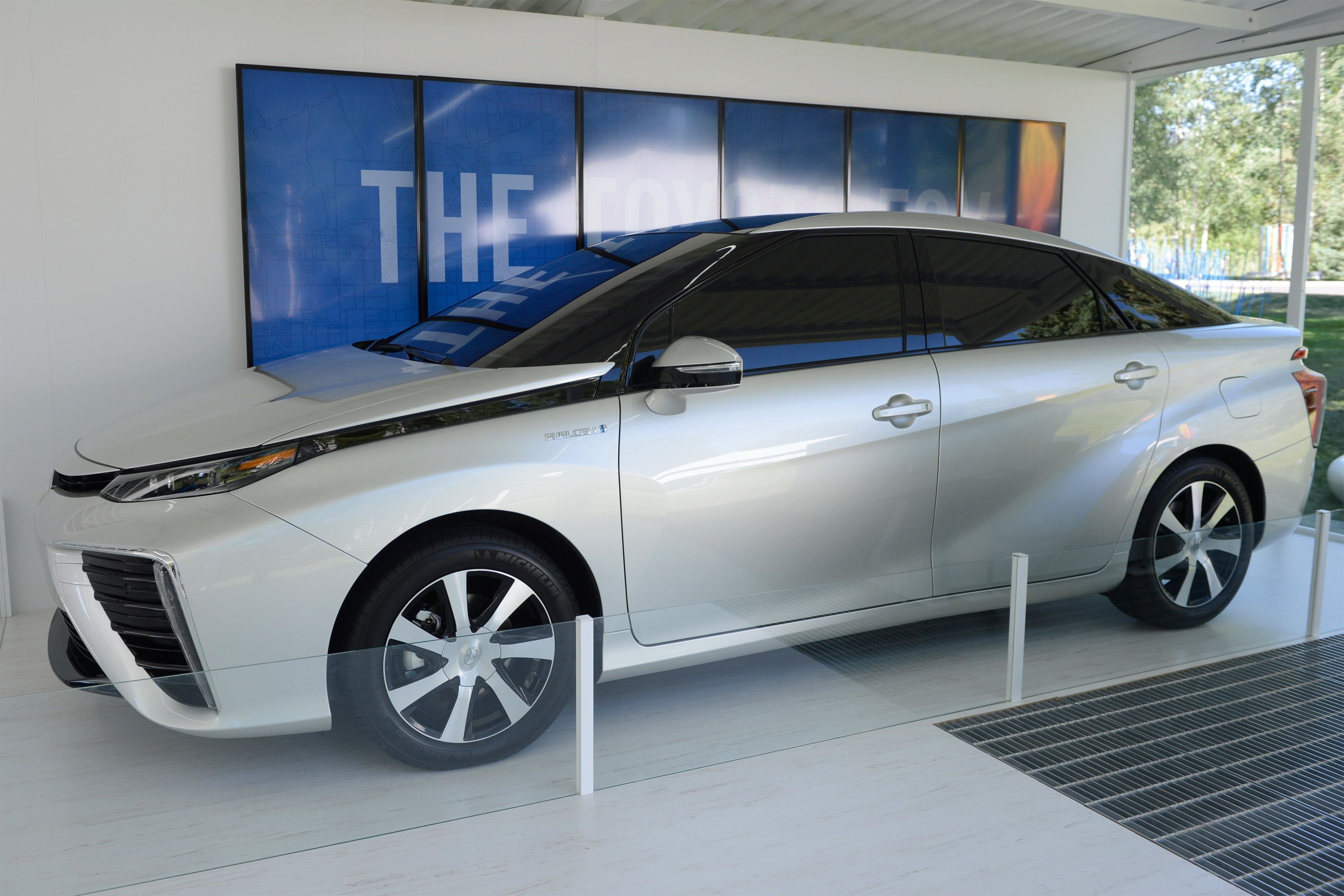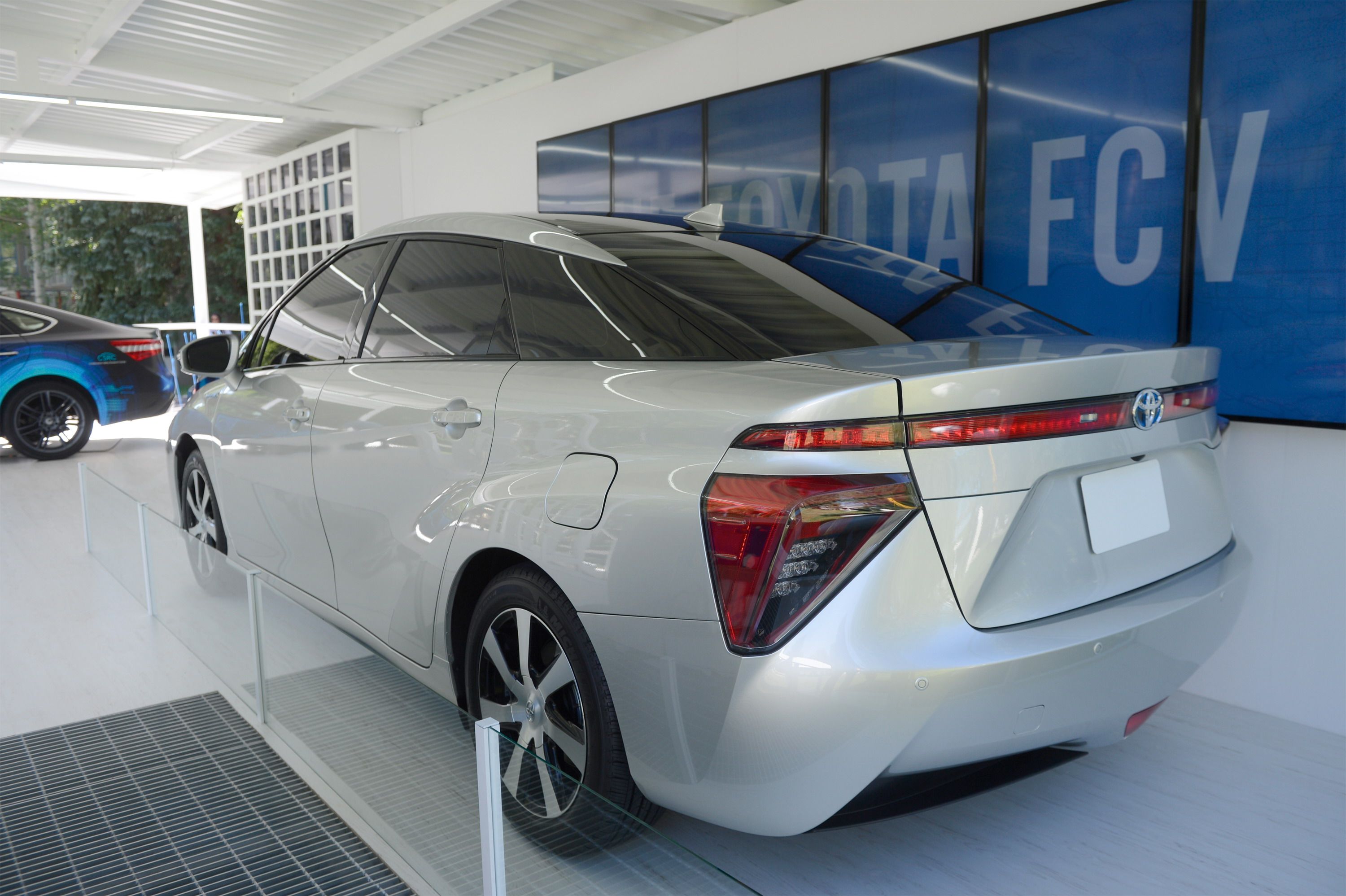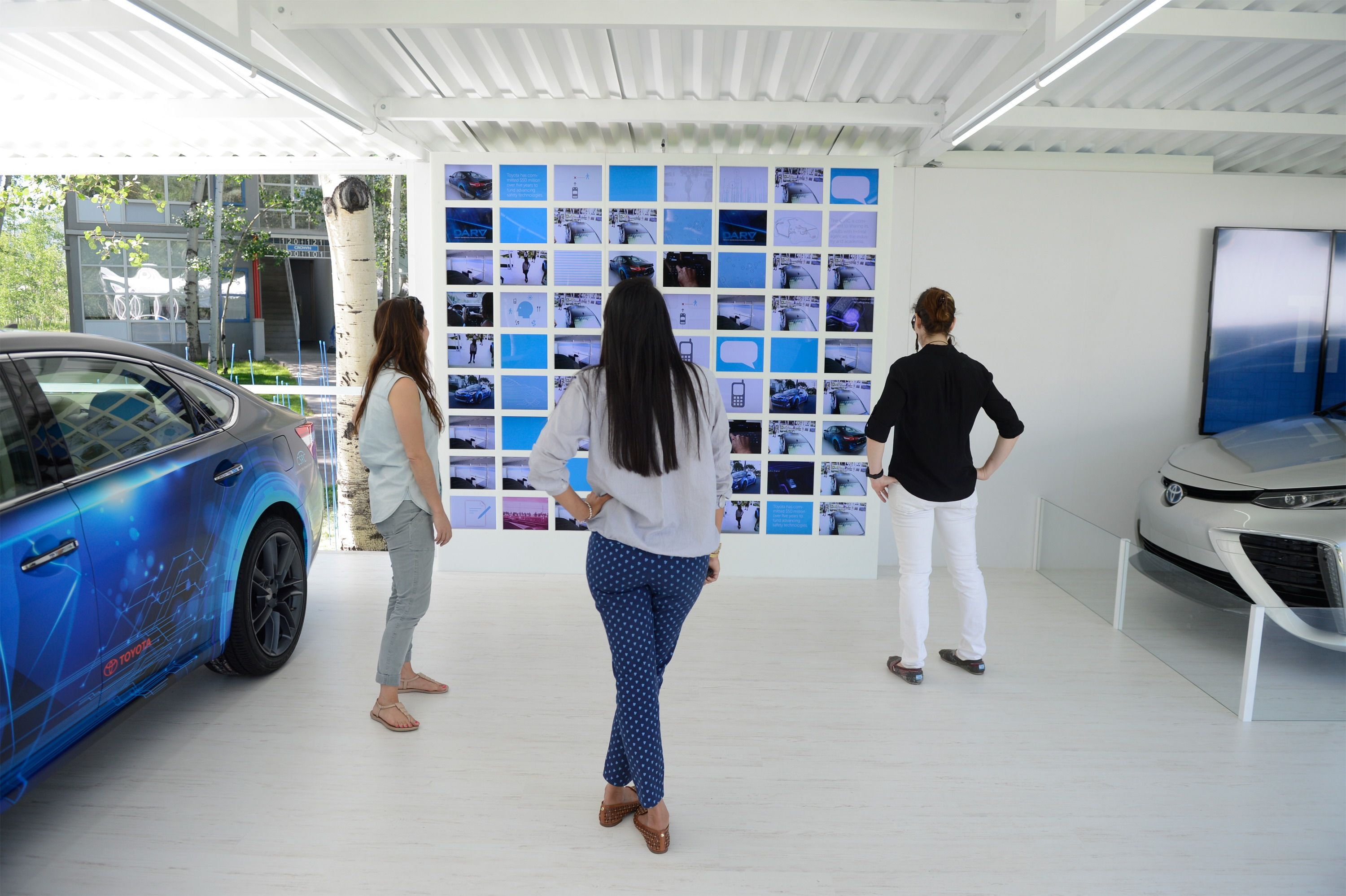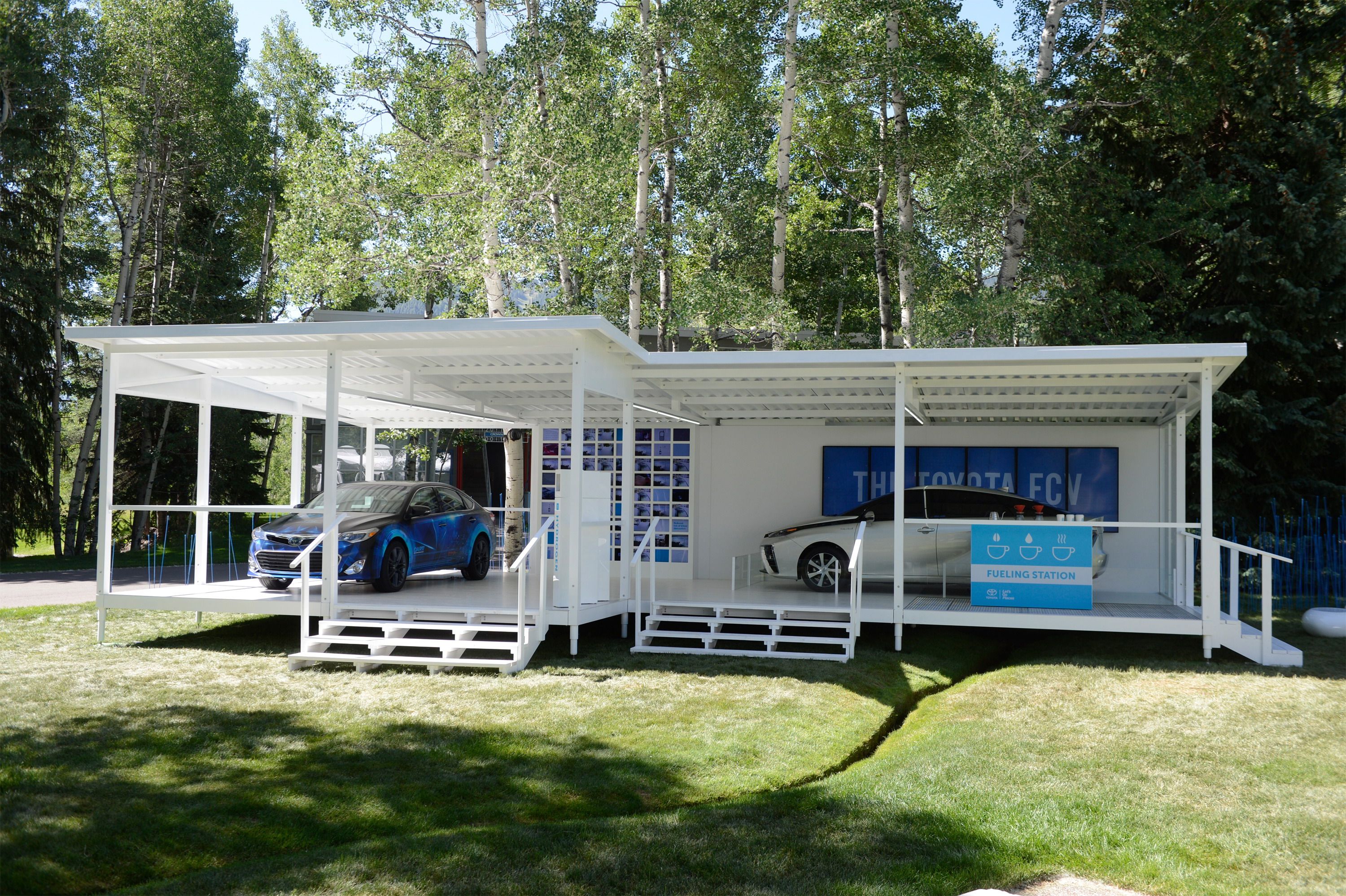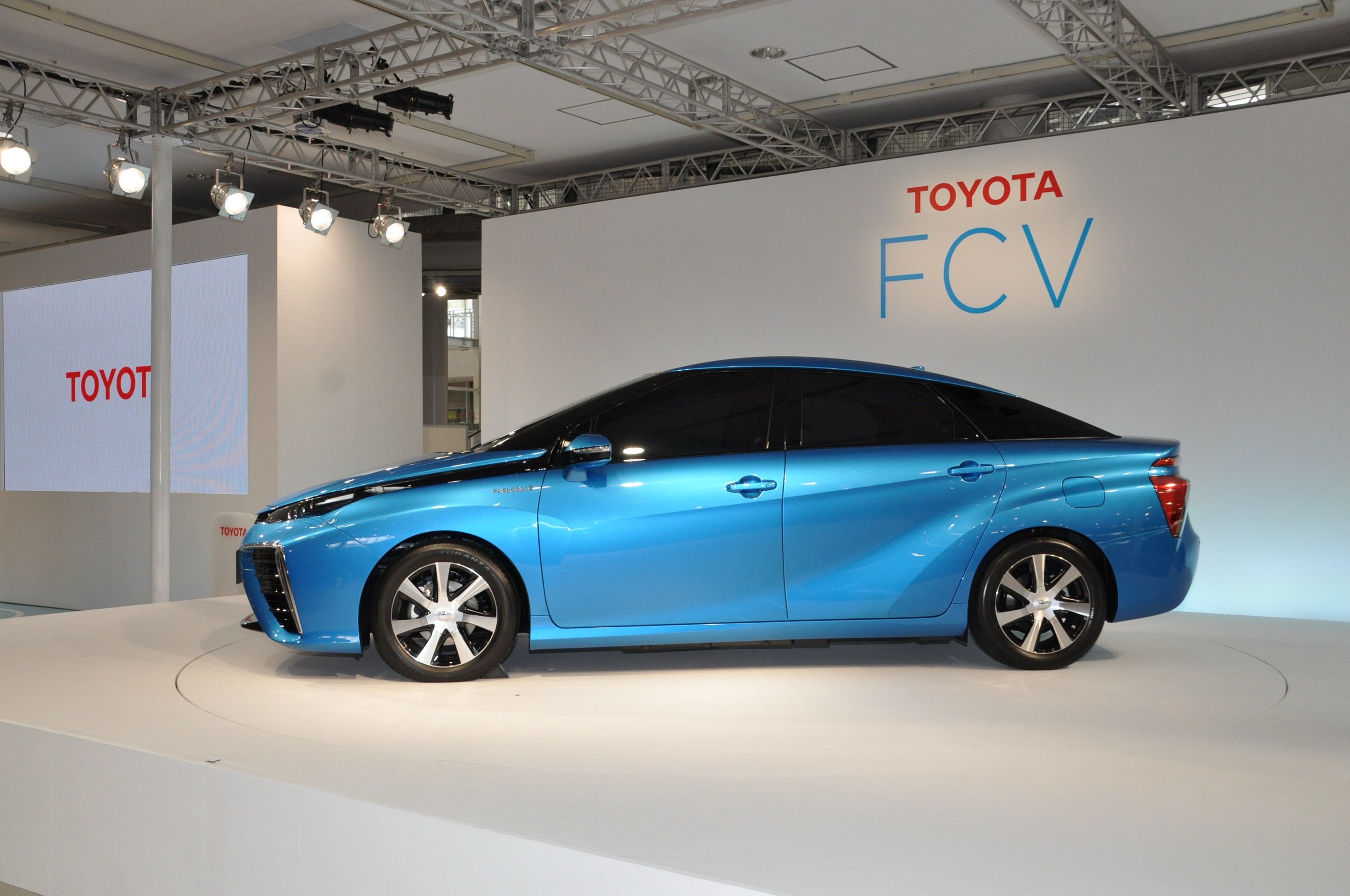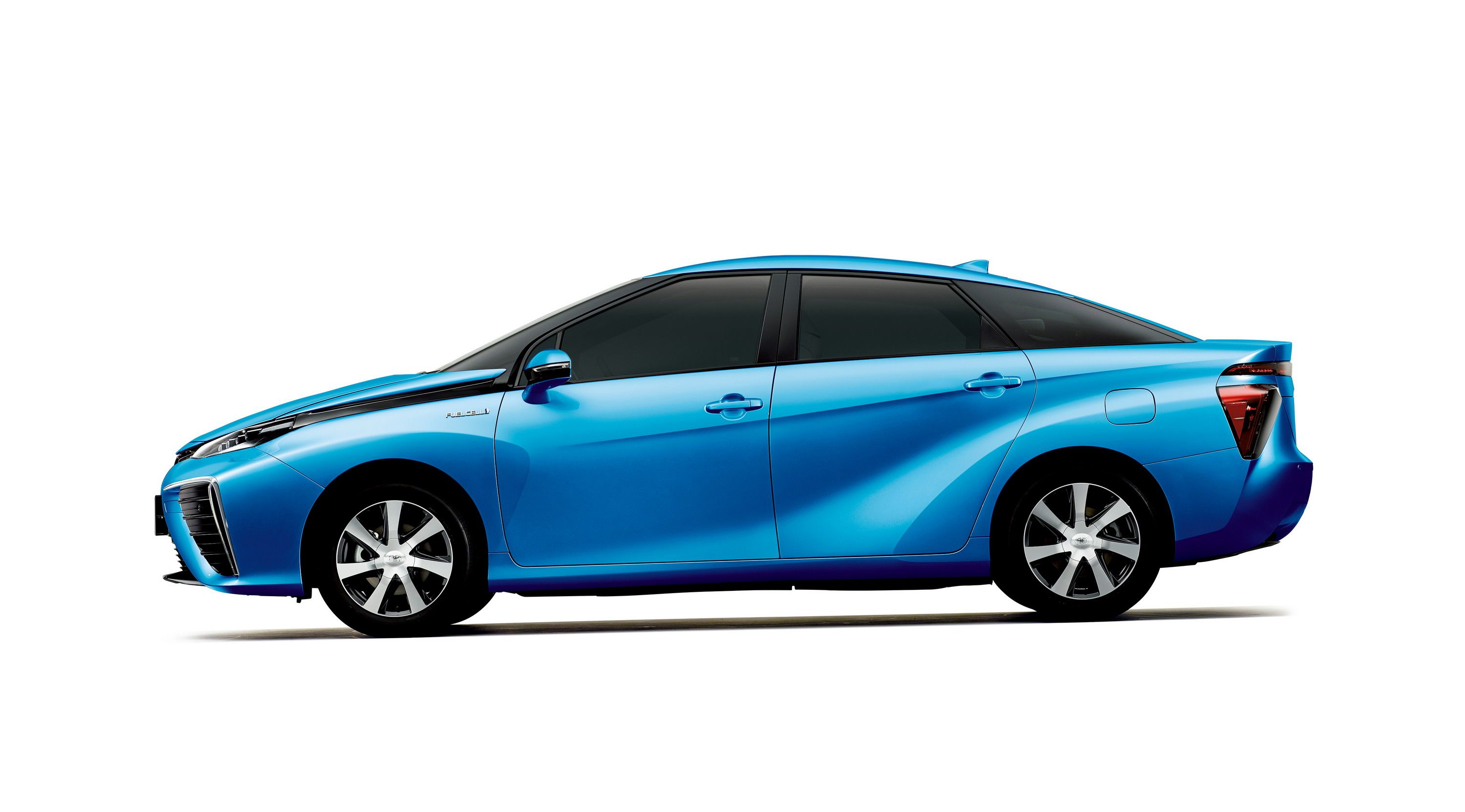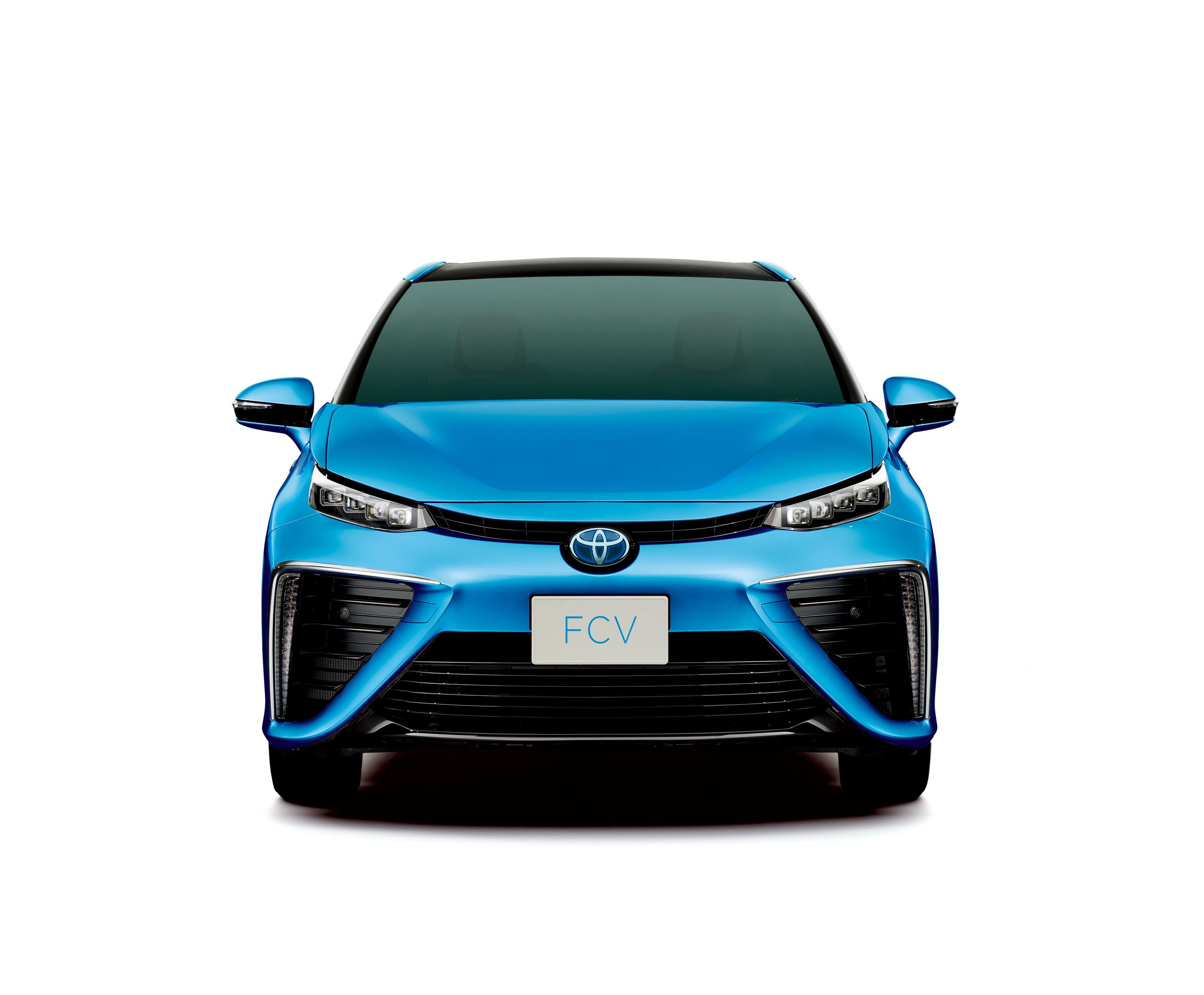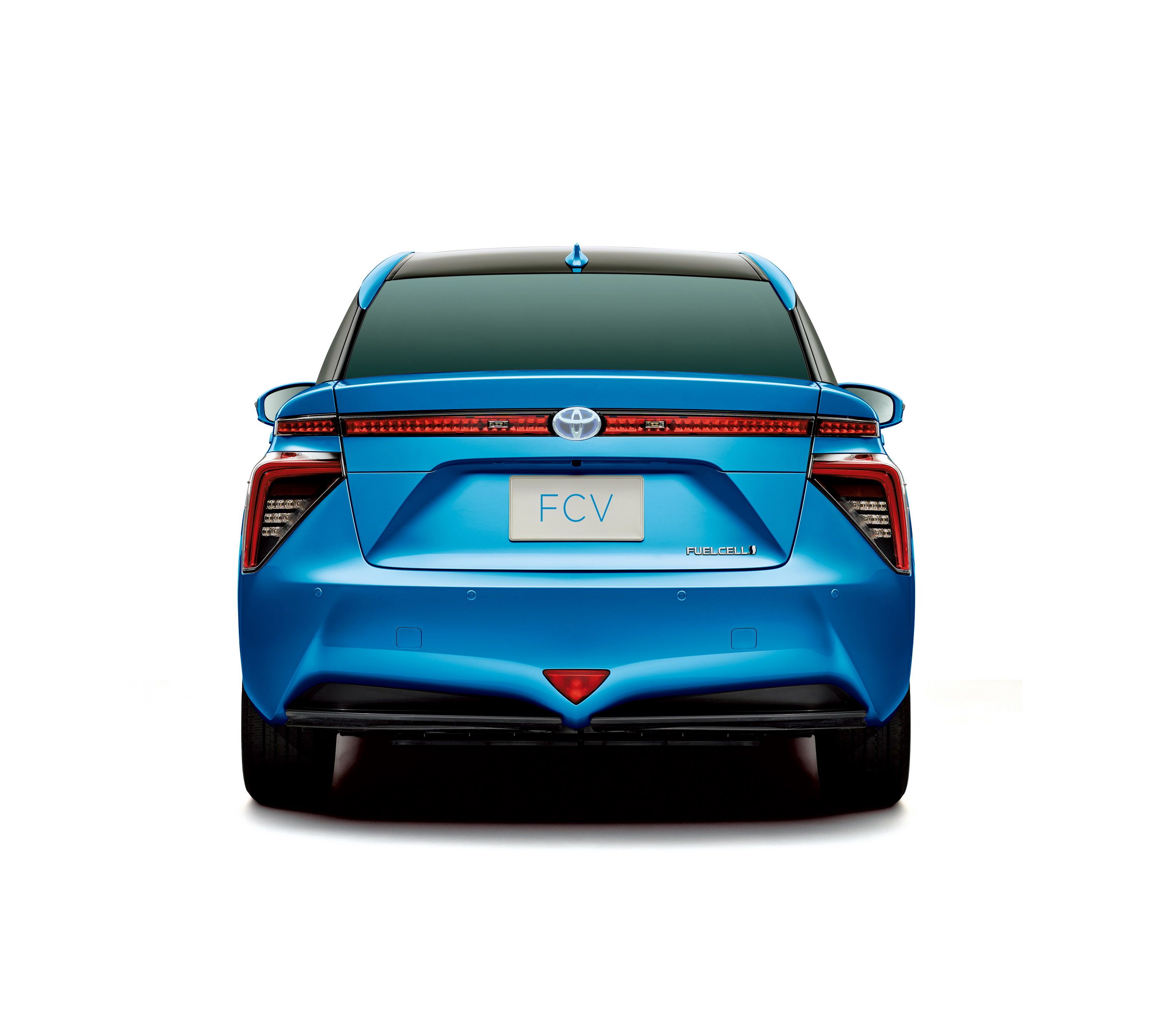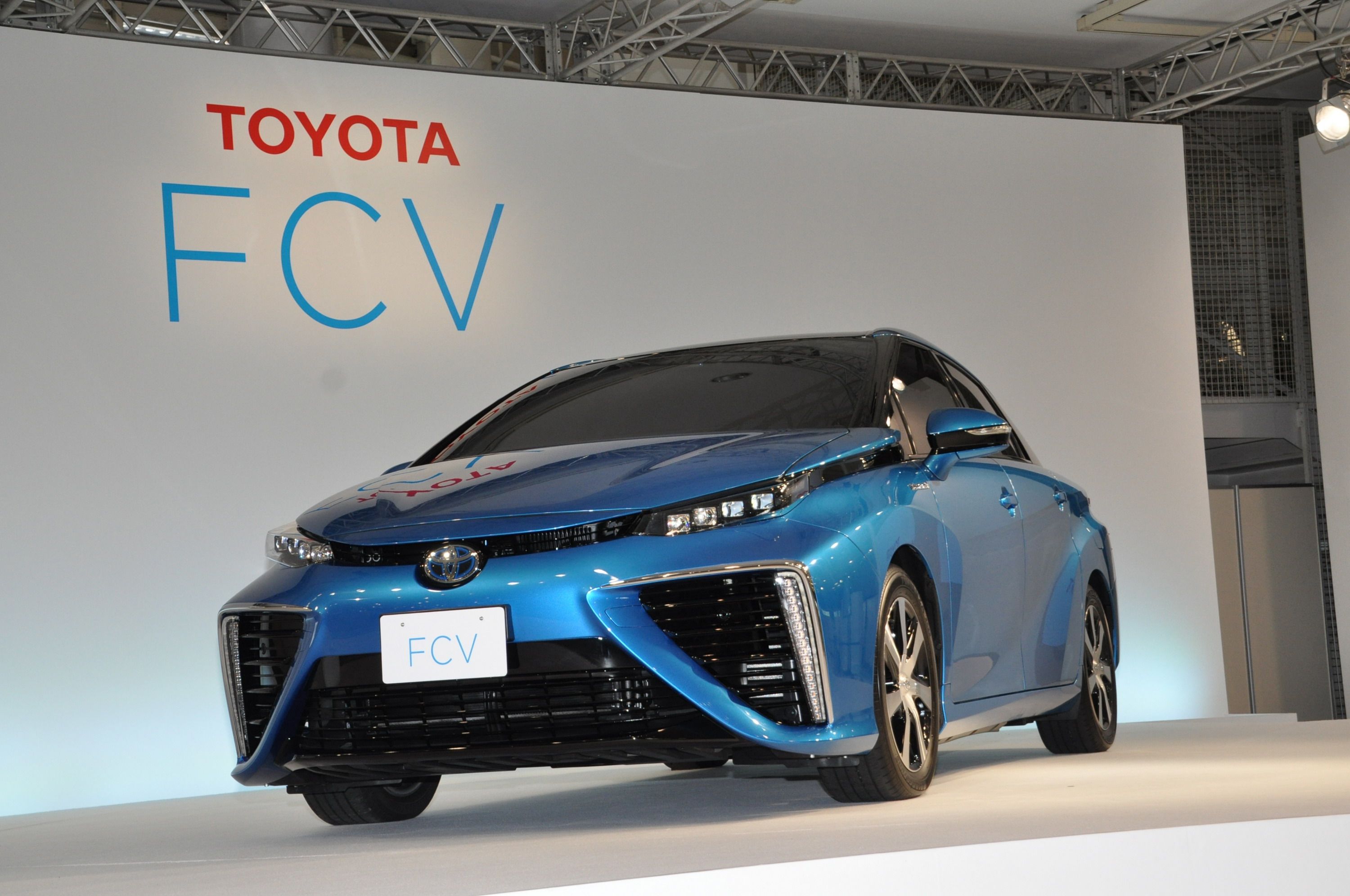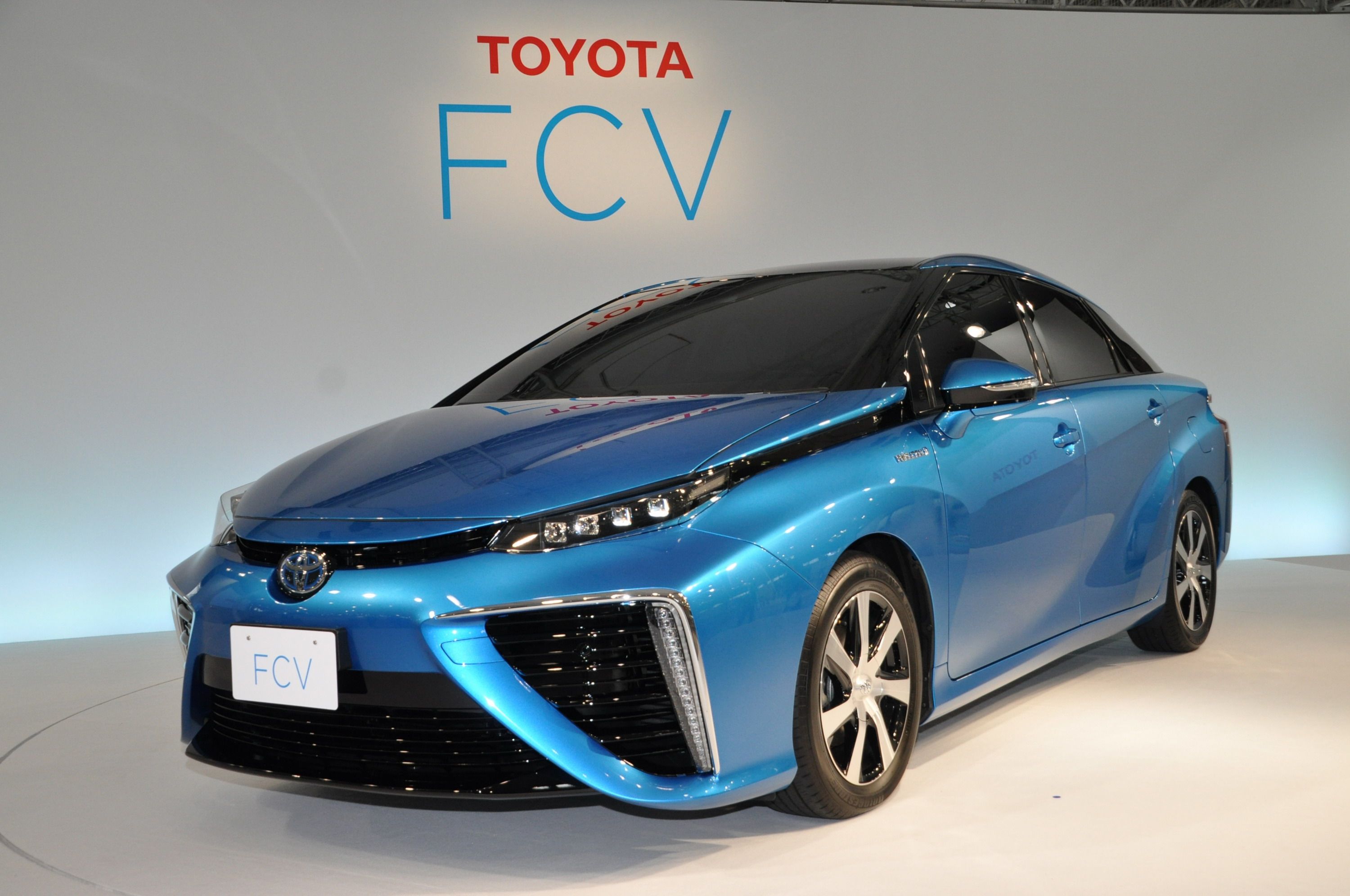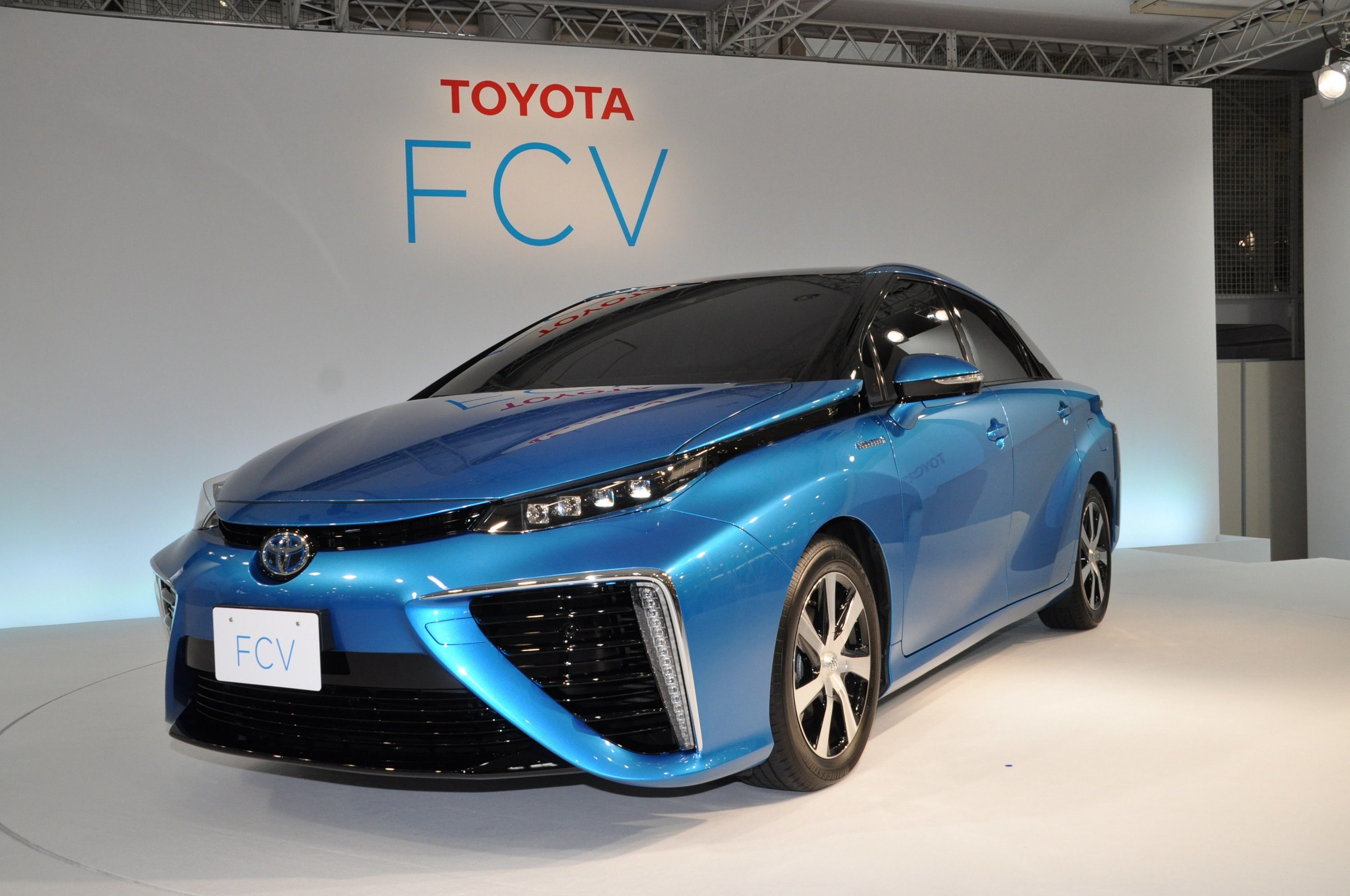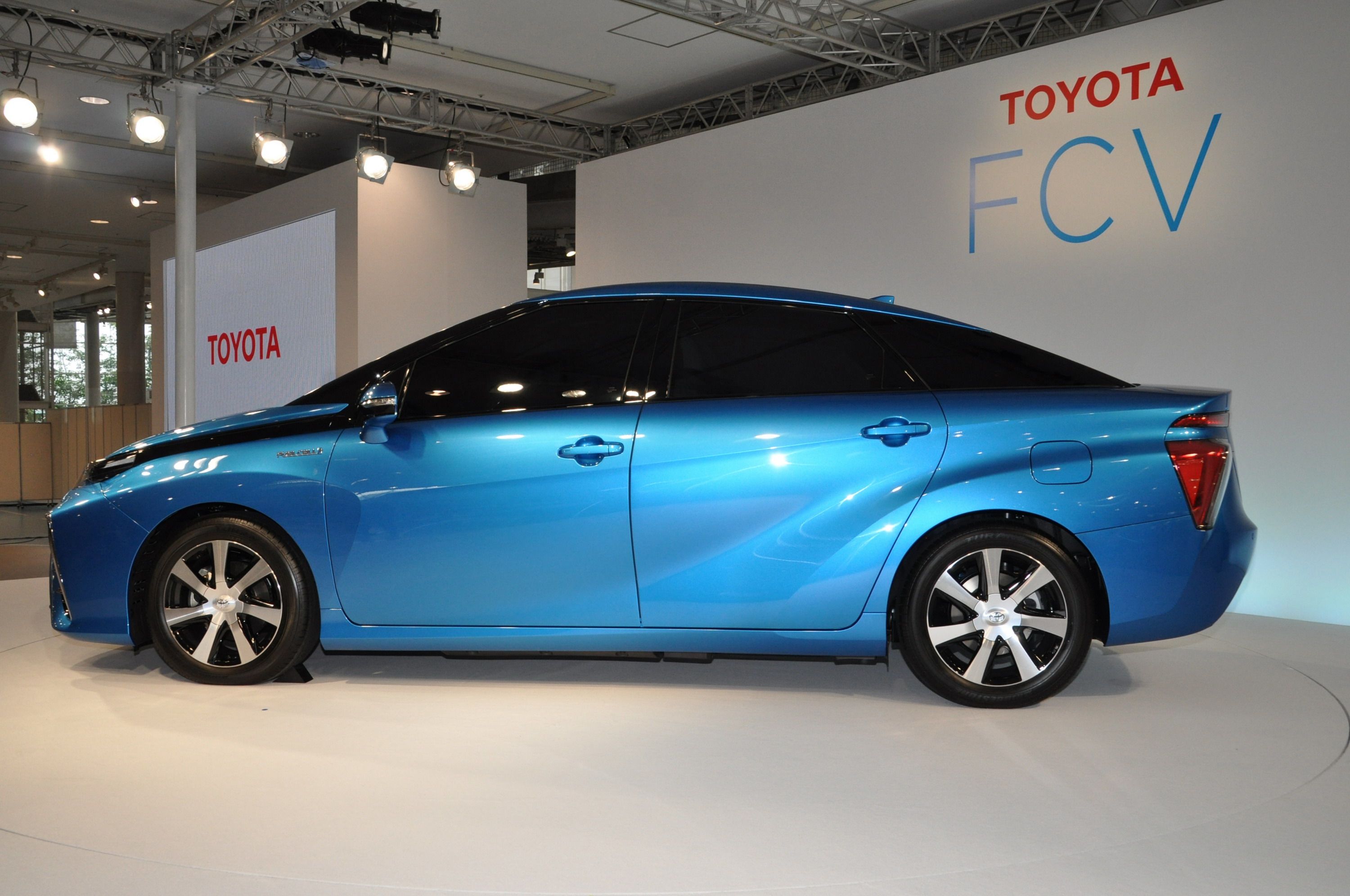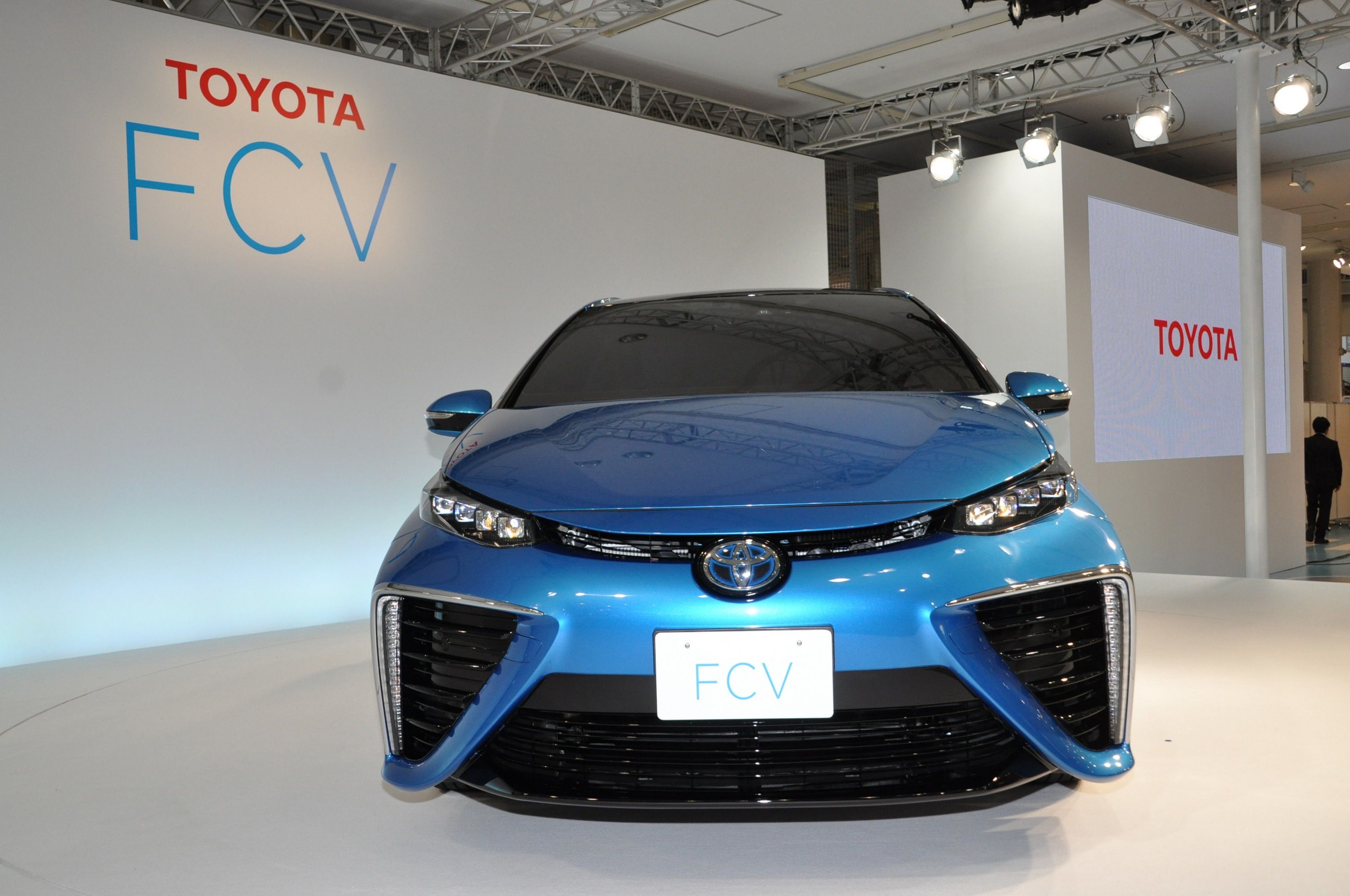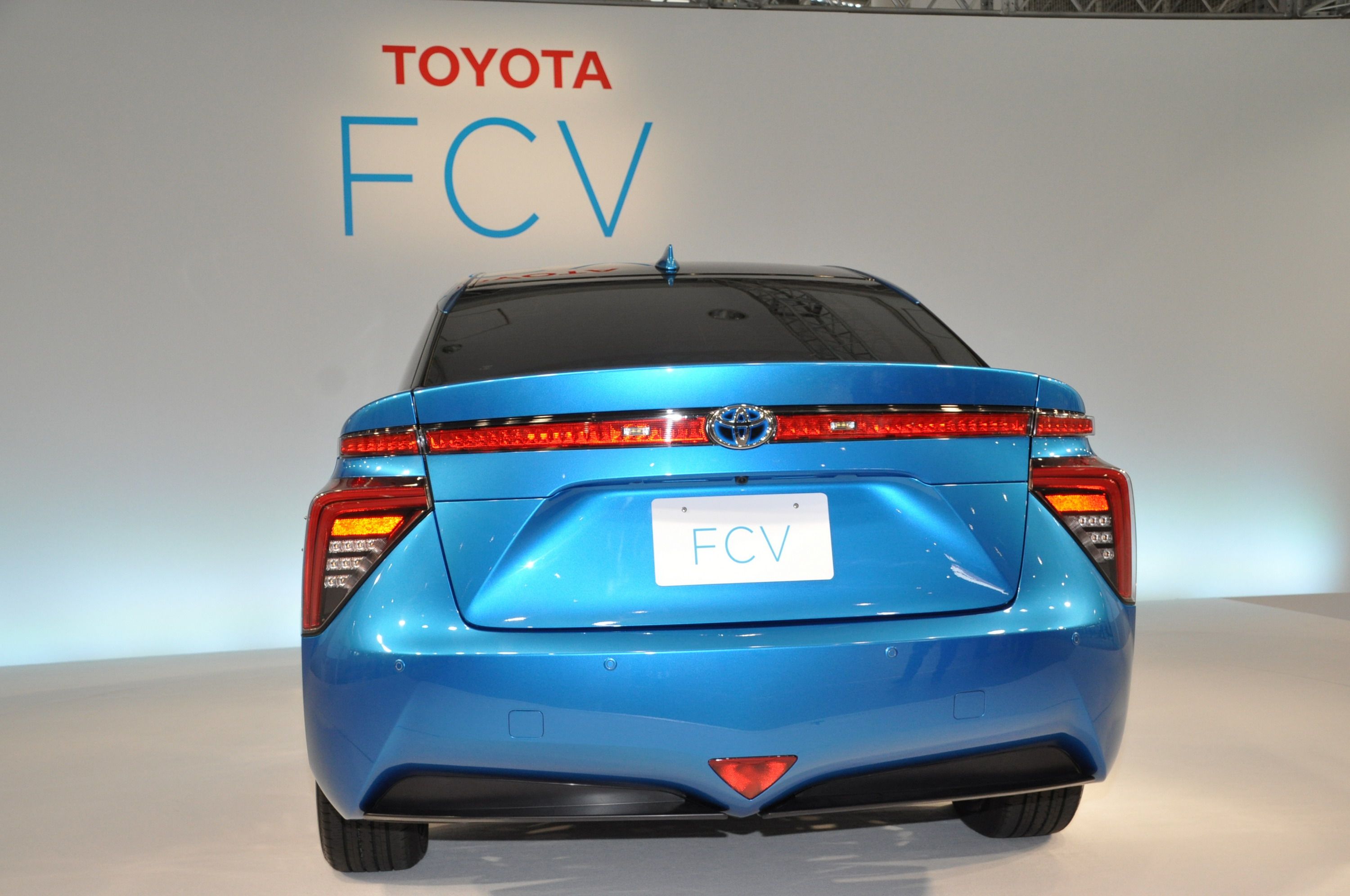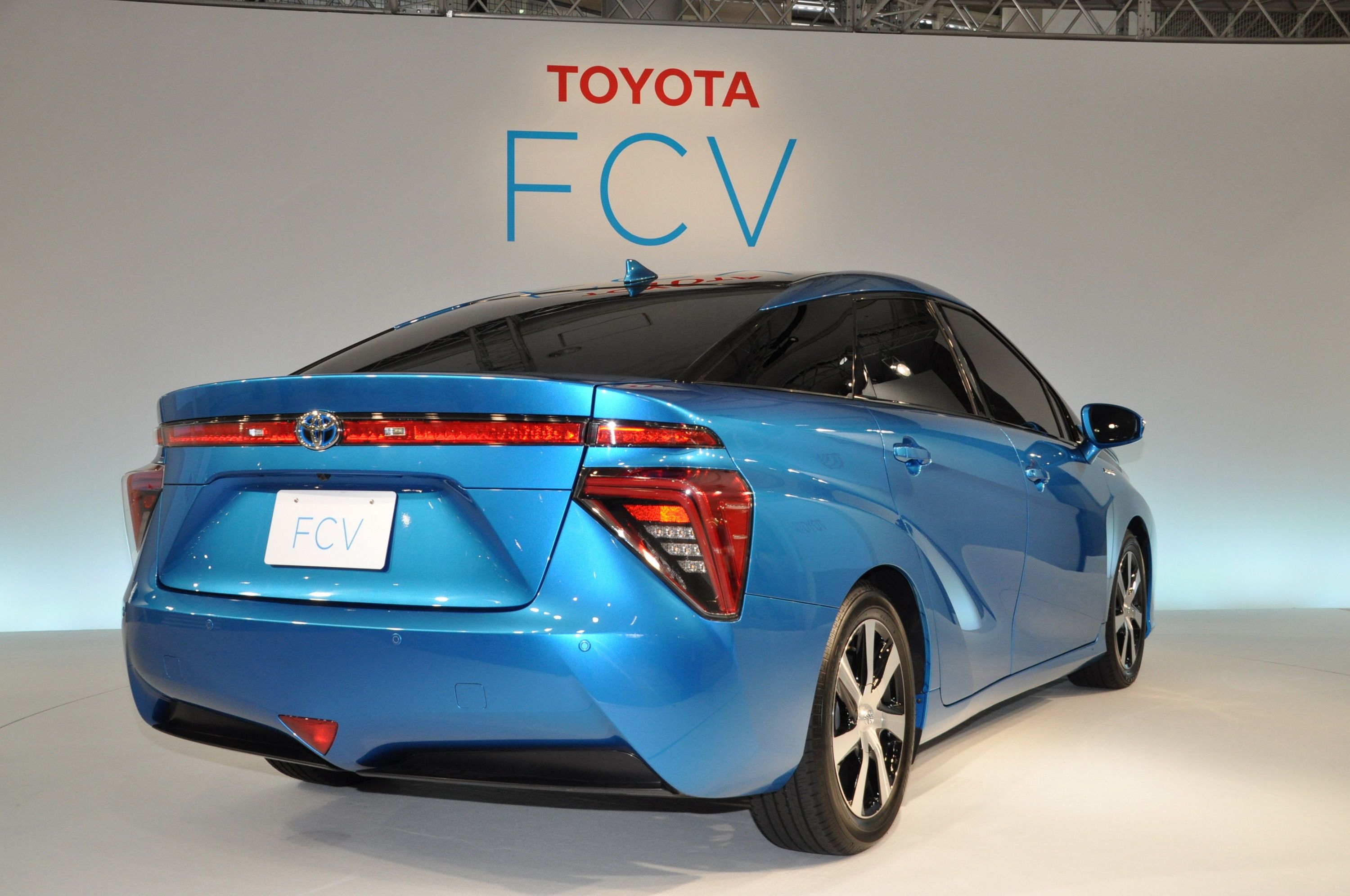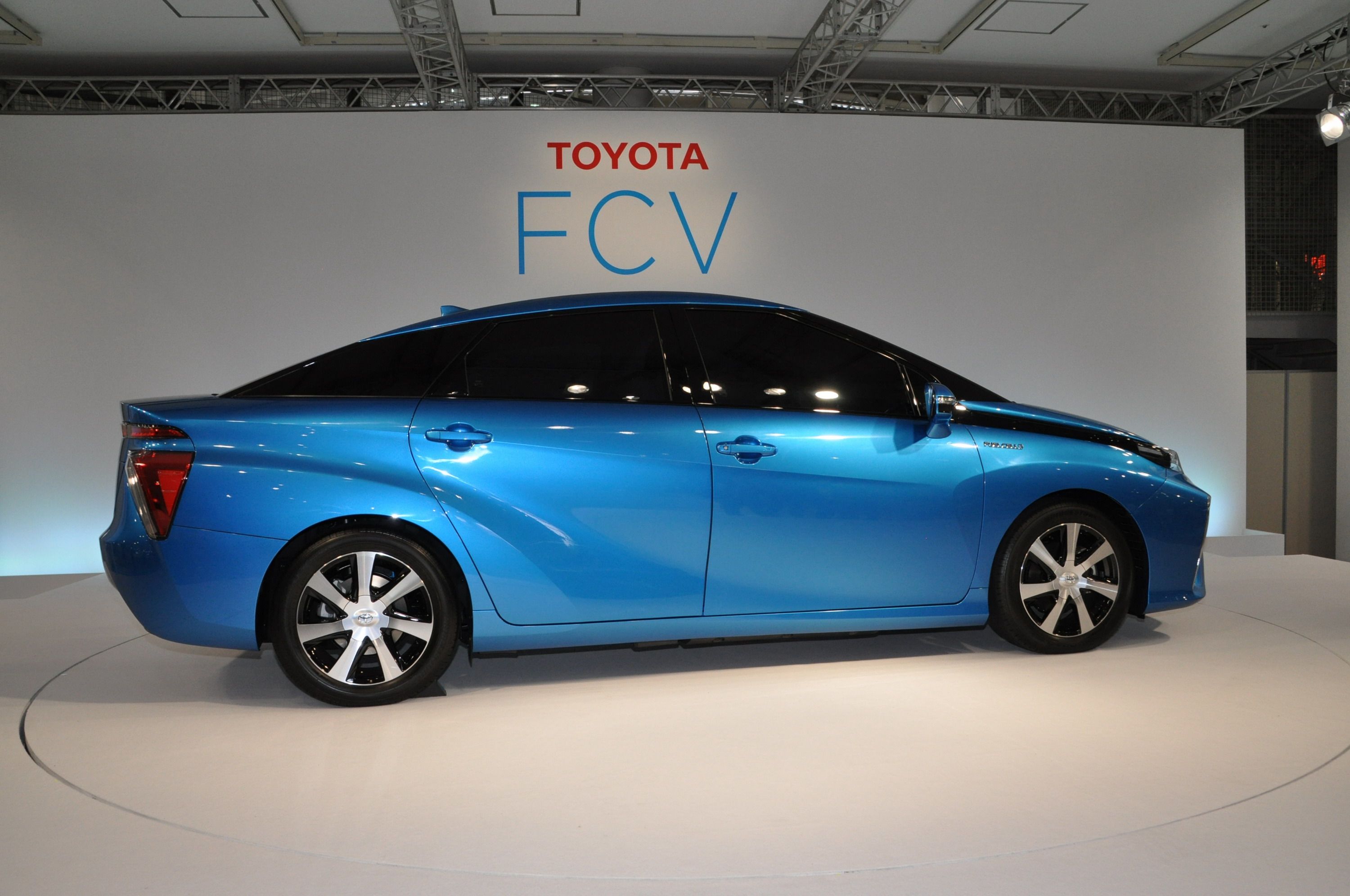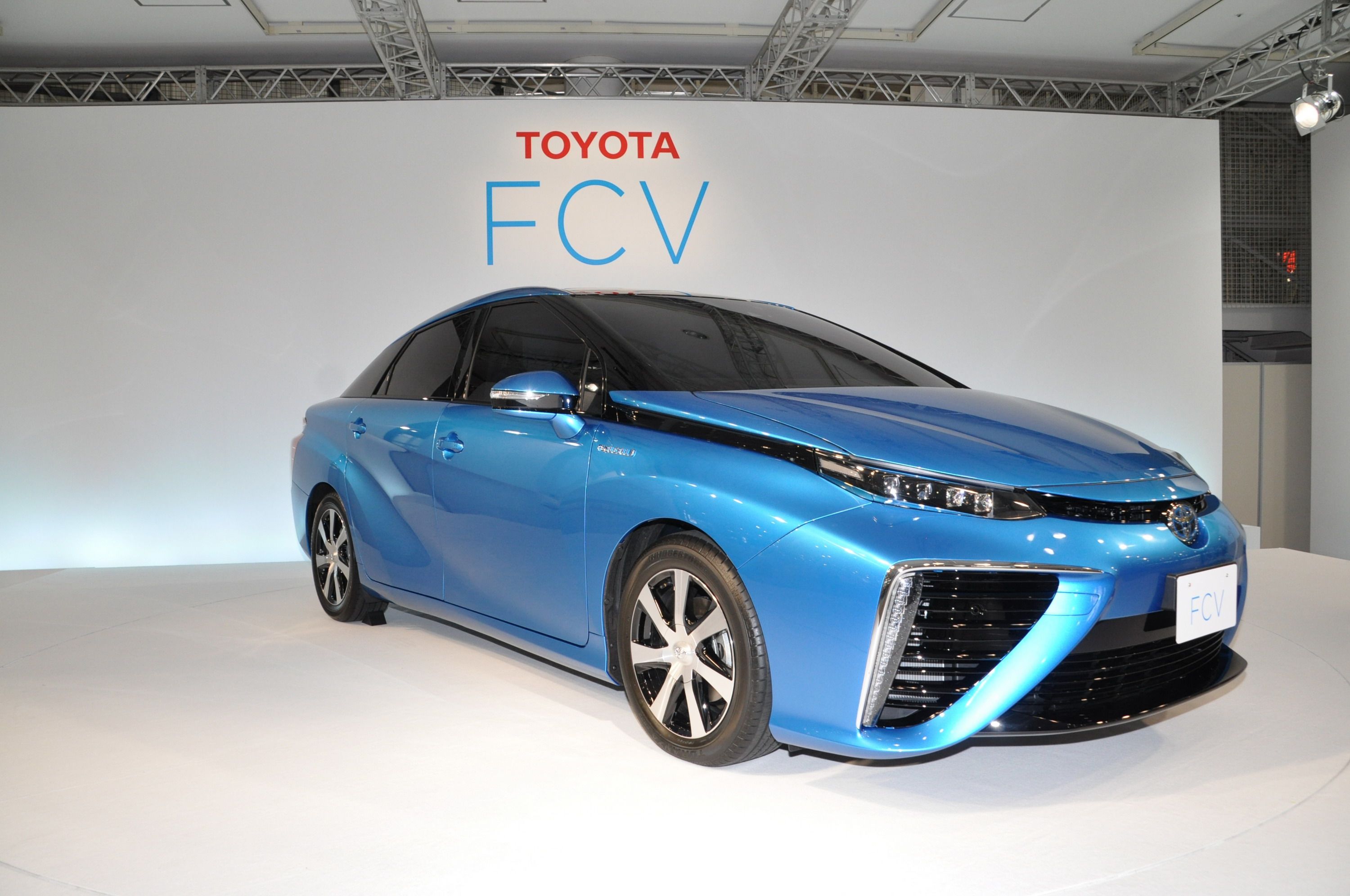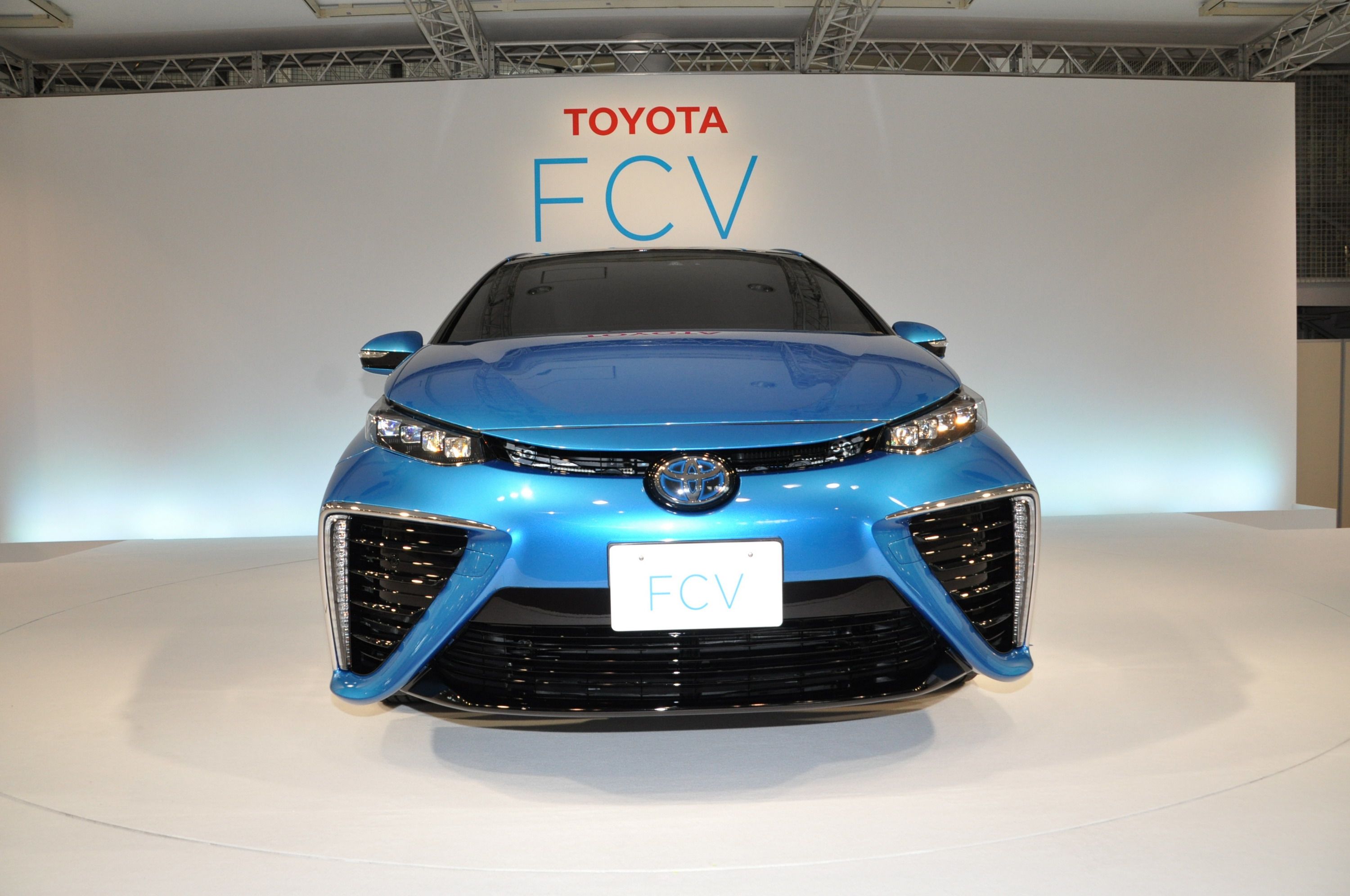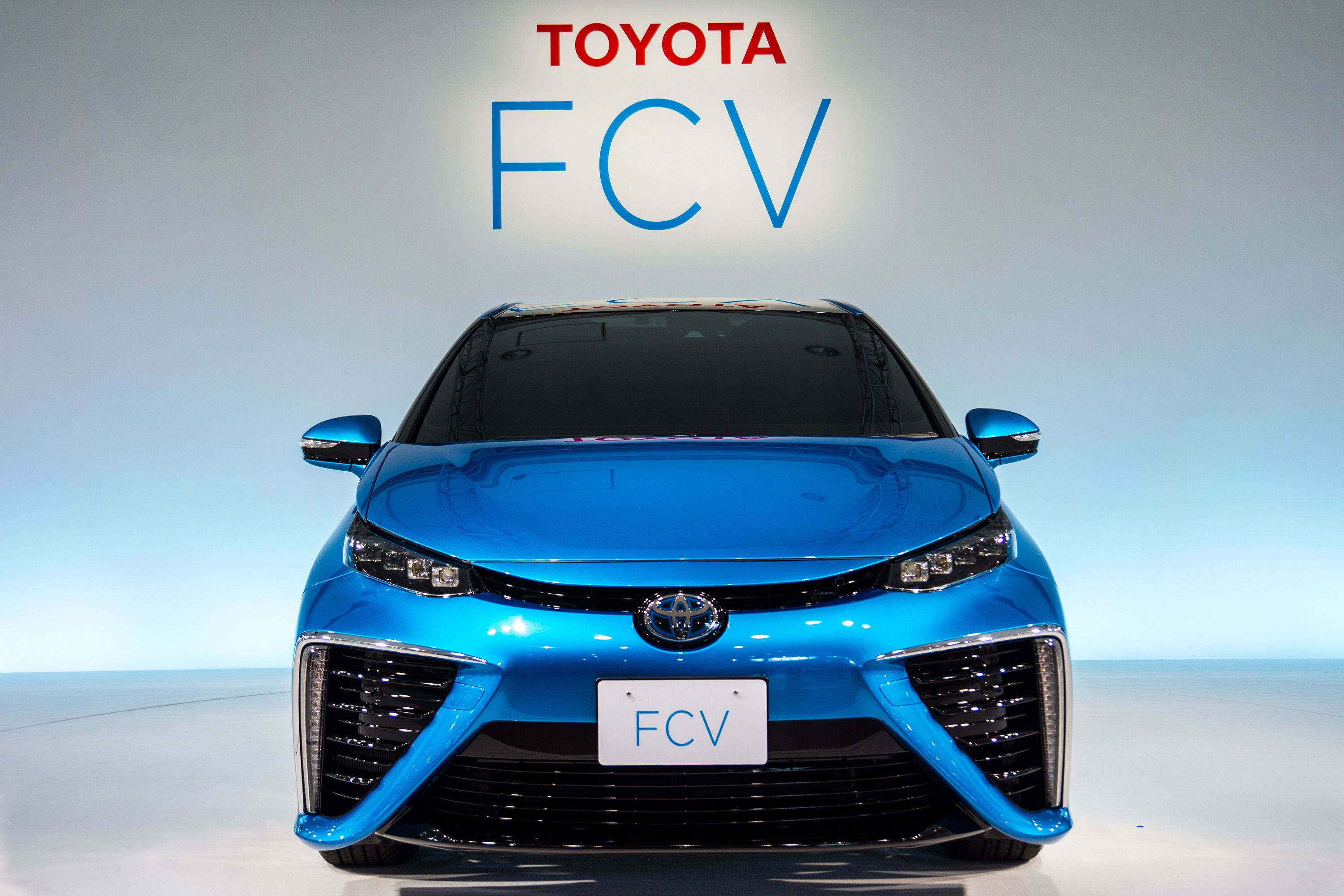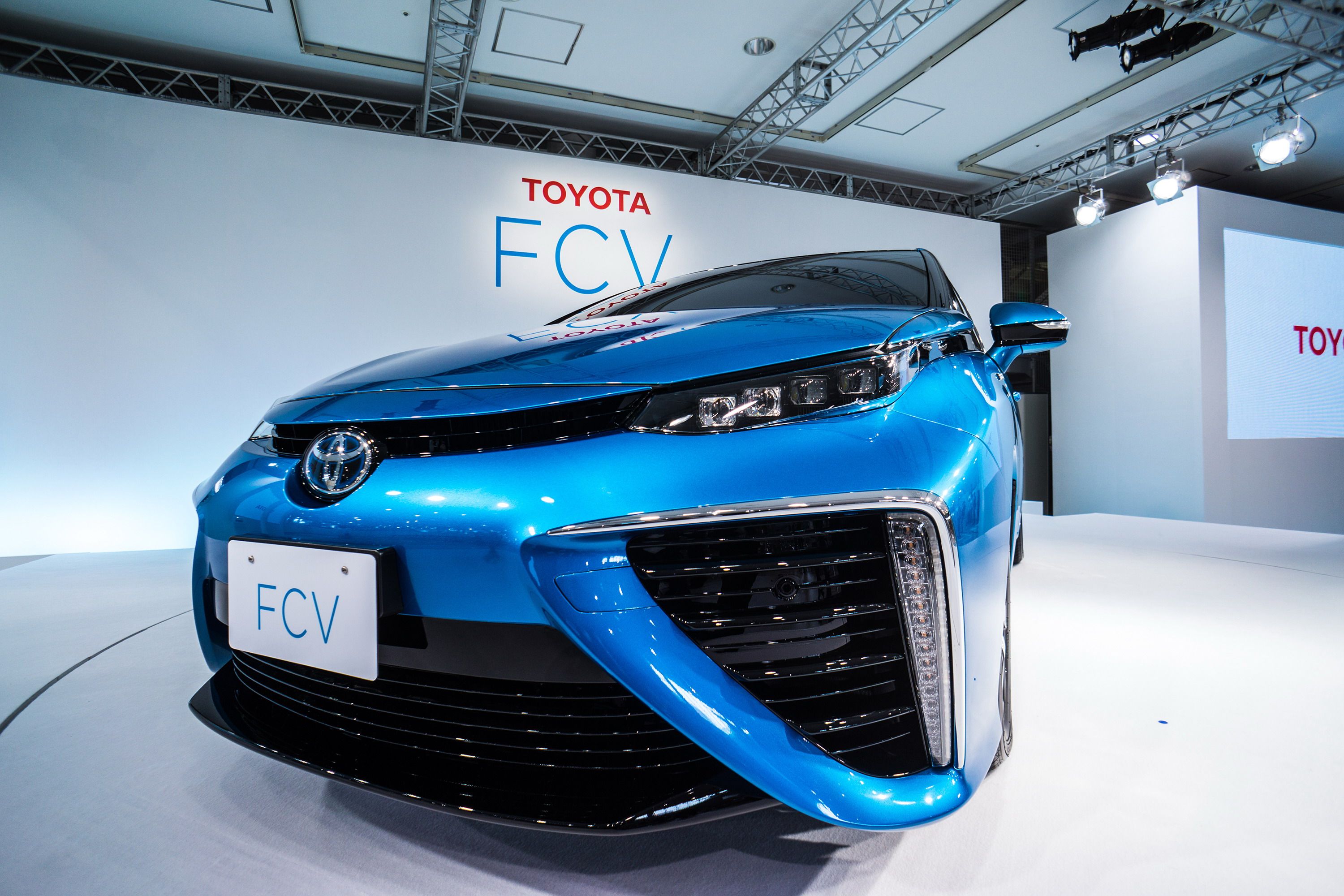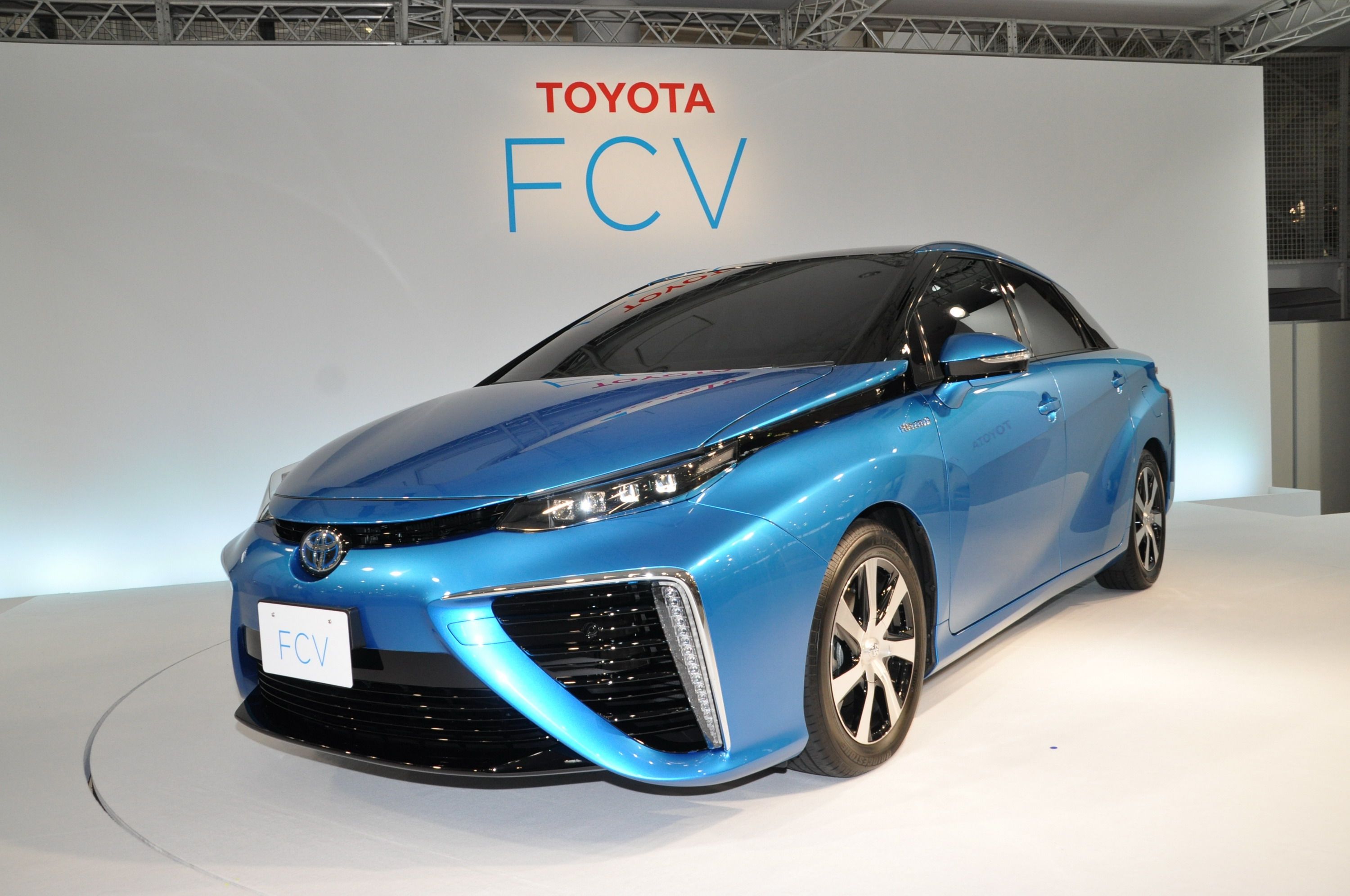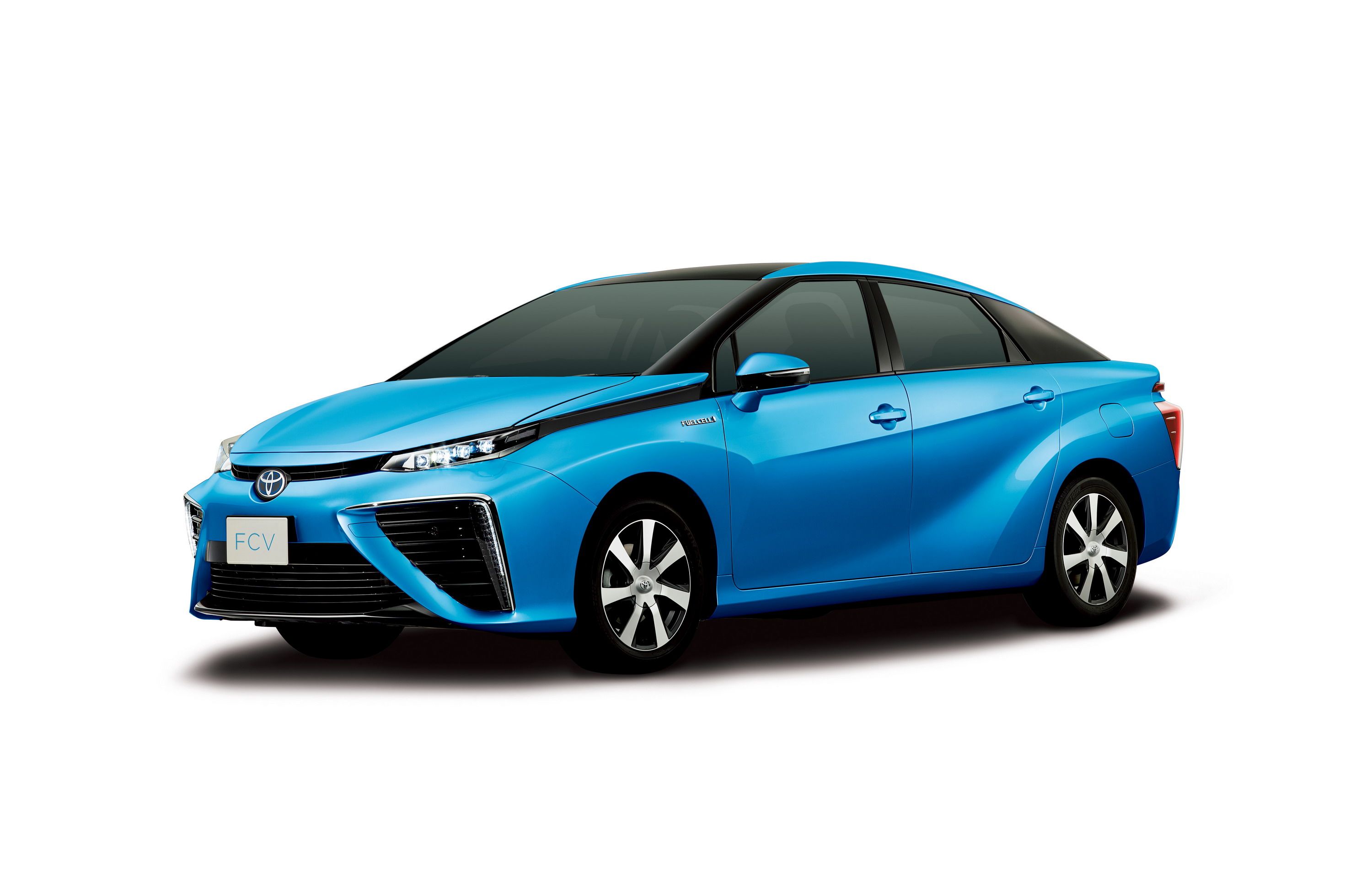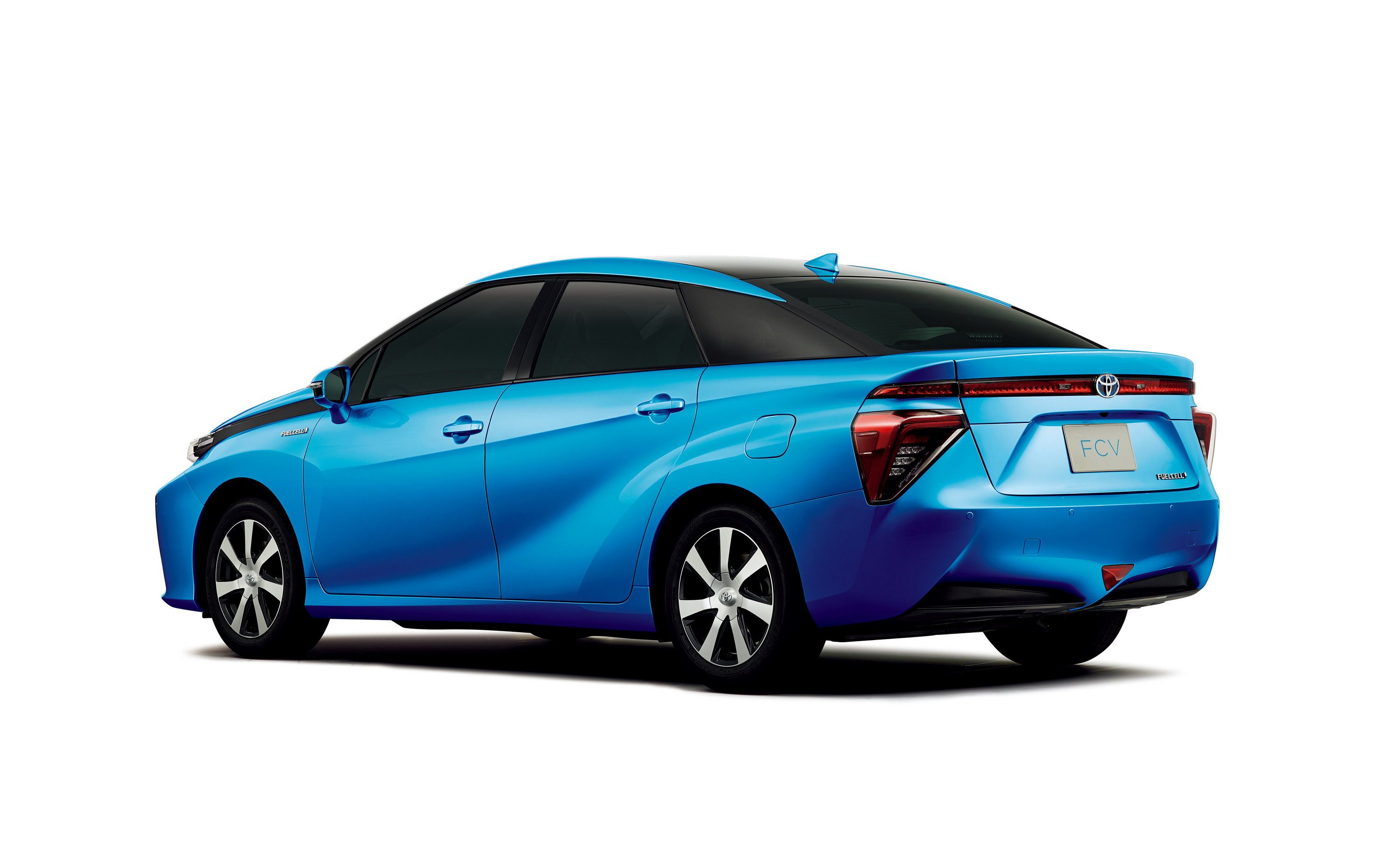Toyota->ke88, a known force to be reckoned with in the alternative-fuel automotive world, is releasing its zero-emission hydrogen fuel cell vehicle, aptly named the FCV, in the summer of 2015. Limited to California initially, Toyota asserts an impressive 310-mile range. Also, the company has announced a partnership with FirstElement Fuels, to make refilling more convenient, with 19 new hydrogen refueling stations coming to the California area. Expect 100 stations in a decade's time. Also, Toyota claims that re-filling will only take five minutes; significantly quicker than a recharge in a Tesla->ke1842 or Nissan leaf, also zero-emission vehicles.
Out here in California, the newest fad is always in the spotlight, and this new FCV should certainly turn a few heads and make people take notice. Also, being a zero-emission vehicle, it will be eligible for Carpool Lane access. And, hey, anything to shave a few minutes off an LA commute is invaluable. Take it from this Los Angeleno.
Click past the jump to read more about the 2015 Toyota FCV.
2015 Toyota FCV
- Make: Array
- Model: 2015 Toyota FCV
- [do not use] Vehicle Model: Array
Exterior
With sleek, aerodynamic lines, the car certainly looks the part of a wind-cheating hyper-miler. Love it or hate it, it's obvious to any bystander that this isn't your average Yaris. This is a decent-sized car, with a length of 191.7 inches and a 109.4-inch wheelbase. Toyota claims that it will accommodate four adults comfortably. Aerodynamic information has not been released yet, but expect at the very least well below a 0.30 Cd.
The front end is interesting; it seems that the Lexus spindle grill-themed treatment has been moved over the the front air-intakes, which are huge and dramatic. This is a grille-less car, but there is plenty of open space towards the left and right of the front bumper, which is most likely there to aid aerodynamics. The side profile is swoopy as well, with a curvy accent line sweeping up towards the rear-rocker panels; this mimics Lexus' own IS->ke500. According to Toyota, the side view is supposed to convey air-to-water transformation, a key characteristic of a fuel cell vehicle.
The theme continues in the rear, with similar, though smaller air-outlet scoops which hint at the Lexus LF-A, and a long, thin taillight that stretches the entire rear of the car. Futuristic looking? Check. I can't help but be reminded of the villains' cars of the classic 1990 movie Total Recall when viewing this car, especially from the rear.
Interior
The futuristic, swoopy theme carries over inside as well, with several TFT screens and the latest driver assistance technology. Interior trim information is limited. However, notable is Toyota's newest generation Driver Awareness technology, called DARV 1.5 (Driver Awareness Research Vehicle), which actually tracks the body frame of the driver, known as "driver lock-in." This technology will allow the passenger, for example, of the FCV to use features that would be automatically "locked out" from the driver while the car is in motion. For example, the system will "know," and allow the passenger to program the navigation, etc., whereas the driver would be "locked out" as long as the car is in motion. Toyota claims that this will help the driver, passengers, and vehicle all work together in harmony to create a safer driving experience. The DARV system will even be able to calculate a "score" based on safe driving practices.
The jury is out whether drivers will embrace this system or despise it. At the very least, it seems nicely integrated, and, in Toyota tradition, should get the job done flawlessly.
Drivetrain
Like a hybrid-electric vehicle, the FCV has a small battery pack for acceleration and regenerative braking. However, instead of an internal-combustion engine, hydrogen fuel cells are used to compress hydrogen into energy, while emitting nothing but water vapor. The FCV uses two high pressure fuel stacks, which equates to roughly 100kW.
This equals a Prius-like 134 horsepower when converted into the standard American rating. Not surprisingly, expect Prius-like acceleration as well. Toyota claims a 0-to-60 sprint of around 10 seconds, and a top speed of around 100 mph. Not exactly face-flattening, but then again, who buys cars like these for raw performance? In typical Toyota fashion, the FCV should drive just fine.
Prices
Pricing has not been officially set yet, but Toyota has announced that it will cost Japanese buyers roughly 7 million yen. Based on conversion rates on 7/10/2014, that's around $69,000. However, Toyota hints at a cheaper cost for the U.S. once it arrives. Still, expect the FCV to cost well over $50 grand.
Competition
Hyundai Tuscon Fuel Cell
Base Tuscon shown here
Hyundai->ke500 is fast at work as well with a hydrogen-powered vehicle. The Tuscon Fuel Cell has been released here in California, with the first lessee taking delivery this past June. While this a crossover SUV design and not a sedan, they are both practical hydrogen-powered vehicles. The Hyundai has slightly lower range of 265 miles, and takes ten minutes to refuel, as opposed to the FCV's five. Hardly significant differences, yet still worth mentioning. Also, as of July 2014, the only way to acquire this Hyundai is through a 36-month lease at a very reasonable $499 per momth with $2,999 down.
Nissan Leaf
The Leaf was the first full zero-emission EV to be released in the United States. It is a practical, innovative offering, though somewhat limited with a range of only roughly 85 miles. Range anxiety may pose a problem for buyers who make more than simple trips to the grocery store. The Leaf performs relatively well, however, with a comparable 0-to-60 time and plenty of right-now torque. Prices start at $28,800.
Tesla Model S
While not a hydrogen-powered vehicle, this is by far the most successful zero-emissions EV. Teslas combine stellar, almost unprecedented range -- for an EV -- with blistering performance. Expect a slightly lower, 270-mile range with the 85 kWh battery but with dramatically better performance from the 416-horsepower electric motor. The Tesla Model S with the 85 kWh battery will reach 60 mph in under five seconds. However, also expect dramatically longer recharge times than the five minutes it takes to refuel the FCV. Prices start at $69,900.
Conclusion
If past successes in Toyota's alternative vehicle endeavors have any bearing, the new FCV should do quite well. Toyota engineering is some of the best in the industry, and we have no reason to believe it won't be every bit as good of a hydrogen-powered car as the Prius is as a regular hybrid. Expect to see more than a few of these on the road in California once they arrive next summer. Look for a detailed road test as soon as we can get our hands on one.
So, what do you think of the Toyota FCV? Would you pay $60k+ for this car? Let us know in the comments section!

